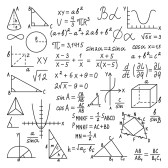Exploring the Role of Significant Figures in the French Revolution

The French Revolution, a transformative era of political and social change, spanned from 1789 to 1799 and forever altered the course of French history. Its ripple effects were felt far beyond France, leaving an indelible mark on the entire European continent. During these tumultuous years, a number of influential figures rose to prominence, each significantly influencing the revolution’s trajectory and results. In this article, we invite you to explore the lives and legacies of these remarkable individuals and discover how their actions helped shape this pivotal moment in history.
Maximilien Robespierre: The Voice of the Revolution
One of the most prominent figures during the French Revolution was Maximilien Robespierre. As a lawyer and politician, Robespierre became known for his powerful oratory skills and unwavering commitment to the revolutionary cause. He played a pivotal role in advocating for radical reforms and championing the rights of ordinary citizens.
Robespierre’s influence extended beyond mere rhetoric – he was instrumental in establishing policies that sought to dismantle the monarchy and redistribute power more equitably among different social classes. His leadership within the Committee of Public Safety led to significant changes such as implementing price controls on essential goods, introducing universal education, and even initiating what became known as “The Reign of Terror.”
However, while Robespierre’s intentions may have been rooted in idealism, his methods were controversial. The Reign of Terror saw thousands executed under suspicion or accusation without due process. This dark period tarnished Robespierre’s legacy as an advocate for justice and equality.
Marie Antoinette: The Symbolic Queen
Marie Antoinette was perhaps one of the most iconic figures associated with the French Revolution. As Queen consort to King Louis XVI, she became an easy target for public discontent due to her extravagant lifestyle amidst widespread poverty.
While it is true that Marie Antoinette’s lavish spending contributed to public resentment towards the monarchy, it is important to note that she was not solely responsible for France’s economic woes. Nevertheless, her actions and reputation as a detached and unsympathetic queen made her a symbol of aristocratic excesses during a time of great suffering for the French people.
Marie Antoinette’s fate was sealed when she famously uttered the words “Let them eat cake” in response to reports of bread shortages. Though there is no concrete evidence that she actually said this, it became a powerful symbol of her perceived indifference and further fueled public anger towards the monarchy.
Napoleon Bonaparte: The Revolutionary General
Napoleon Bonaparte rose to prominence during the French Revolution as a military leader who exhibited exceptional strategic prowess on the battlefield. Initially serving as a general in the French army, he quickly ascended through the ranks due to his victories in various military campaigns.
Napoleon’s role in the French Revolution cannot be understated. In 1799, he staged a coup d’état and established himself as First Consul, effectively ending the revolutionary era and ushering in a new period known as the Napoleonic era. His subsequent rise to Emperor further consolidated his power and influence over France and much of Europe.
While Napoleon is often associated with his military conquests, it is crucial to acknowledge his significant contributions beyond warfare. He implemented numerous reforms that modernized France’s legal system, established public education programs, and introduced comprehensive administrative structures that continue to shape modern-day government practices.
Jean-Paul Marat: The Radical Journalist
Jean-Paul Marat was another influential figure during this tumultuous period. As a radical journalist and political activist, Marat played an instrumental role in shaping public opinion through his newspaper publications.
Marat’s writings were characterized by their fiery rhetoric against those he deemed enemies of the revolution. His incendiary language often called for violent action against perceived traitors, which further fueled the revolutionary fervor. Marat’s assassination in 1793 only served to elevate his status as a martyr and symbol of resistance against counter-revolutionary forces.
Despite his controversial methods, Marat’s impact on the French Revolution cannot be ignored. His writings galvanized public support and helped mobilize ordinary citizens to take an active role in the revolutionary cause.
Conclusion
The French Revolution was a complex and multifaceted event that involved numerous significant figures, each leaving their indelible mark on history. Maximilien Robespierre, Marie Antoinette, Napoleon Bonaparte, and Jean-Paul Marat were just a few of the influential individuals who played pivotal roles during this transformative period.
Their actions and ideologies continue to be studied and debated by historians today. By examining their contributions, we gain valuable insights into the motivations and complexities that drove the French Revolution forward. Understanding these significant figures is essential for comprehending the broader historical context and legacy of this pivotal moment in French history.
This text was generated using a large language model, and select text has been reviewed and moderated for purposes such as readability.






